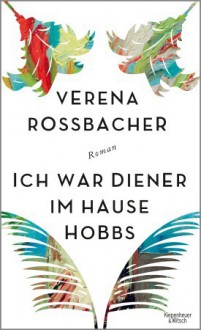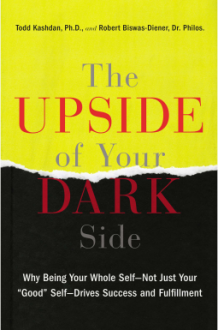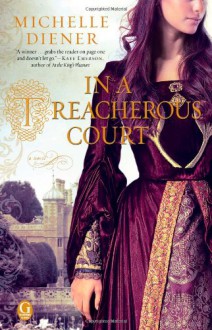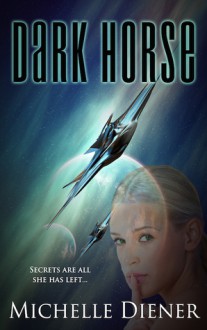
Ja dieser Roman war tatsächlich ein ganz kleines bisschen mühsam, aber kennt Ihr den Unterschied zwischen einem Buch, das ausschließlich anstrengend ist und einem, bei dem sich am Ende alle Mühe gelohnt hat? In die Kategorie fällt nämlich punktgenau diese Geschichte. Alle Rätsel lösen sich am Ende auf, die Handlungsstränge werden entwirrt, aufgeklärt und genau zusammengeführt. Wie bei einem gut gelösten Kreuzworträtsel fallen die Buchstaben in die richtige Reihe, das Losungswort poppt auf und das Gesamtbild wird sichtbar.
Die Beschwerlichkeit des Romans ist übrigens von der authentischen Sorte und liegt am Protagonisten, dem Butler Christian Kaufmann genannt Krischi. Krischi ist nicht wirklich sympathisch, er ist nebulös und nichtssagend, denn er hat kaum Persönlichkeit, er ist ein exzellenter aktiver Verdränger, der sogar aus der Vergangenheit nur Fakten mitnimmt, die sein Weltbild nicht allzu sehr erschüttern, er checkt mitten im Auge eines Hurrikans und des Geschehens so gut wie gar nichts, obwohl sogar unbeteiligte Dritte alles mitbekommen und schon mit dem Zaunpfahl winken. Krischi bleibt stoisch, uninvolviert, neutral, respektive feige – ein richtiger Mehlwurm. Da der Leser ausschließlich aus der Sicht von Krischi ins Geschehen der Geschichte eintaucht, ist durch diesen Charakter der Plot oft verwirrend und lückenhaft, aber eben auch authentisch.
Als der im österreichischen Kleinstadtmilieu Feldkirch geborene junge Mann nach der Butlerschule bei der reichen Züricher Familie Hobbs zu arbeiten beginnt, ist er sogar bereit, wegen einer marginalen Namensgleichheit in der entfernten Verwandtschaft seinen Namen abzulegen und sich fortan Robert zu nennen, um Verwechslungen vorzubeugen. Die Familie Hobbs ist ein recht guter Arbeitgeber: reich, großzügig, freundlich, sehr hedonistisch, aber auch etwas verkorkst. Der erfolgreiche Businessmann Hobbs hat einen Zwillingsbruder, der auch im gemeinsamen Haushalt mit den Kindern lebt und möglicherweise eine Affäre mit seiner Schwägerin hat. Aber Krischi denkt nicht einmal eine Sekunde darüber nach, er hält sich wie immer aus allem raus. Frau Hobbs ist überhaupt so ein Typ Marke verwöhntes, wunderschönes, gepflegtes und sehr unkompliziertes Weibchen, das sich jeden Mann nimmt und einverleibt, der nicht bei drei auf den Bäumen ist. Eine Frau, die die Männer reihenweise ins Verderben stürzt, weil sie sich in sie verlieben, während sie schon wieder wie ein Schmetterling von Blüte zu Blüte flattert. Was sie wirklich bei ihrem Mann hält, findet der Leser nie heraus, denn Robert/Krischi hat sich nie Gedanken darüber gemacht, wahrscheinlich ist es der angenehme reiche und opulente Lebensstil, den der Ehemann gewährleisten kann.
Irgendwann kollidieren die berufliche und die private Welt von Krischi genannt Robert.
Als Frau Hobbs mit ihm in seine Heimatstadt Feldkirch fährt, seine besten Freunde Olli, Isi und Gösch kennenlernt und mit einem von ihnen eine Affäre beginnt, entwickelt sich ein unabsehbares episches Drama, das aus der Vergangenheit und dieser unangenehmen Situation resultiert und in einem tödlichen Finale gipfelt. Dabei wollte Krischi immer sein Privatleben von seinem Butlerjob trennen. Auch in dieser Situation versucht er, sich anfänglich rauszuhalten, bis diese „Kopf in den Sand“-Strategie nicht mehr funktionieren kann, da er persönlich und auch seine Freunde viel zu sehr involviert sind. Als er endlich aktiv wird, setzt er gemäß seiner Rolle als Dilettant in Beziehungsangelegenheiten genau die falsche Aktion und macht sich auch noch mitschuldig an dieser Tragödie, die er weder verursacht hat, noch kontrollieren kann.
Wie schon gesagt zwischendurch war ich schon sehr irritiert über das verworrene Beziehungsgeflecht, das die Autorin zwischen der Familie Hobbs und den Freunden von Krischi inklusive Anspielungen auf die Vergangenheit spinnt. Aber im Endeffekt entpuppt sich die Geschichte gleichsam als griechische Tragödie, die einfach nicht aufzuhalten ist.
Stilistisch haben mir sowohl die Sprache als auch der ab und an aufblitzende Humor in der Story sehr gut gefallen. Die Autorin macht zum Beispiel ziemlich respektlos und genial ihre humoristischen Anmerkungen zu den typischen literarischen Werken, die man so in der beginnenden Adoleszenzphase liest und probiert. Da werden Hesse, Max Frisch, Marlen Haushofer, Franz Kafka, Albert Camus und Thomas Bernhard beziehungsweise die typische jugendliche Beschäftigung mit diesen Werken ganz köstlich durch den Kakao gezogen.
So liefert Krischis Freund Gösch zum Thema James Joyces Ulysses folgende Aussage im Rahmen eines Referats ab:
Man vermutete in ihm einen ausgebufften feindlichen Ausländer und in seinen Schriften wichtige Marschanweisungen fürs feindliche Ausland, die aber offensichtlich so unentschlüsselbar waren, dass auch das feindliche Ausland fassungslos davorsitzen würde. […] Tatsächlich aber blättert man ja bis heute ratlos im Ulysses und rätselt, was er da eigentlich ausspioniert hat. Er war gar nicht so avantgardistisch, wie alle immer denken, Ulysses war einfach der missglückte Versuch, militärische Strategien zu verschlüsseln.
Peter Handke wurde einmal gefragt, ob er nicht eine Lesung machen wolle in Feldkirch, er sagte, „Ach wissen Sie, ich habs schon schwer genug in meinem Leben.“
Alle Figuren sind sehr detailgetreu, tief und liebevoll entwickelt. Oft fragt man sich als Leser, was die von der Autorin ausschweifenden Einzelheiten zu den Personen überhaupt mit der Geschichte zu tun haben, aber im Finale des Romans sind sie tatsächlich wesentlich, das erschließt sich erst ex post. Auch die extrem genau skizzierten und breit angelegten Nebenfiguren ergeben schlussendlich einen Sinn, denn sie sind die einzigen, die als Außenstehende die reale Situation überblicken und liefern letztendlich die letzten Anstöße zur Auflösung der offenen Fragen.
Ein kleiner Umstand hat mich dennoch in der Endabrechnung des Romans gestört. Die Autorin kündigt quasi von der ersten Seite der Geschichte beginnend die große Tragödie unentwegt inflationär immer wieder an. So etwas nervt mich enorm. Ich lasse mich gerne überraschen, und diese effektheischende Einpeitschung durch Spoilern kann ich gar nicht leiden. Wahrscheinlich ist dieser für mich unangenehme Stilgriff jedoch dem Umstand geschuldet, dass die Geschichte schon über weite Strecken ein bisschen verwirrend ist, und andere Leser bei der Stange halten soll, den Roman nicht vorzeitig abzubrechen.
Fazit: Ein verworrenes sehr vielschichtiges Beziehungsdrama, das ein bisschen Durchhaltevermögen erfordert, das aber wie bei einem guten Krimi oder einem guten Rätsel durch die Aufklärung aller Hintergründe dann ziemlich genial finalisiert.
Ich war Diener im Hause Hobbs von Verena Rossbacher ist 2018 im Verlag Kiepenheuer & Witsch in Hardcover-Ausgabe erschienen. Nähere Infos zum Buch über einen Klick auf das Cover im Beitrag oder auf der Verlagsseite.


 Log in with Facebook
Log in with Facebook 









